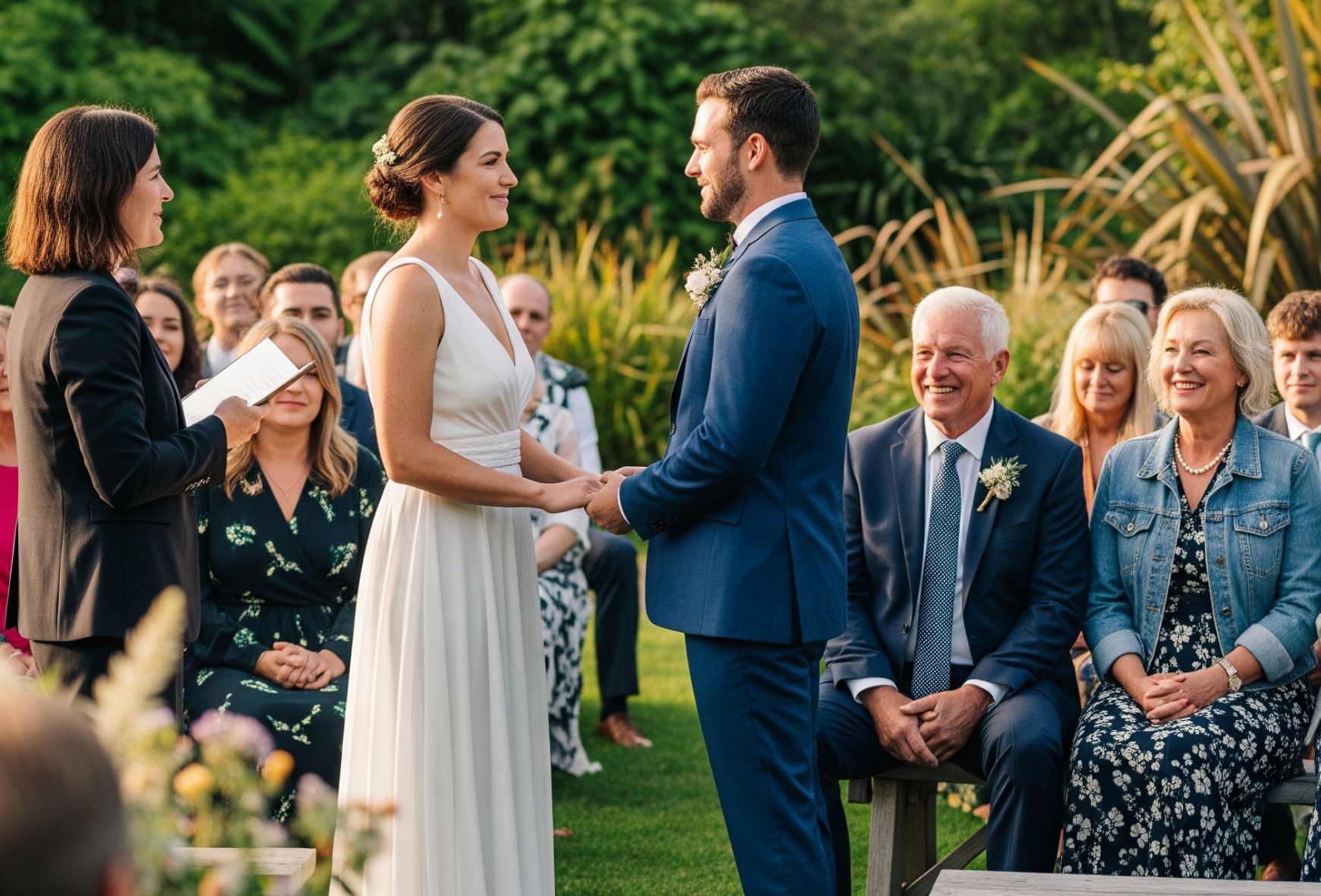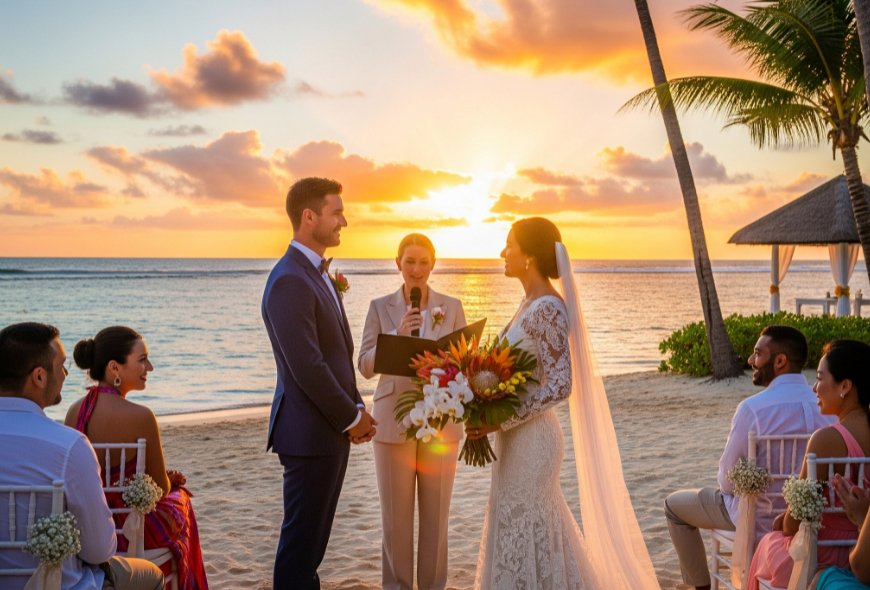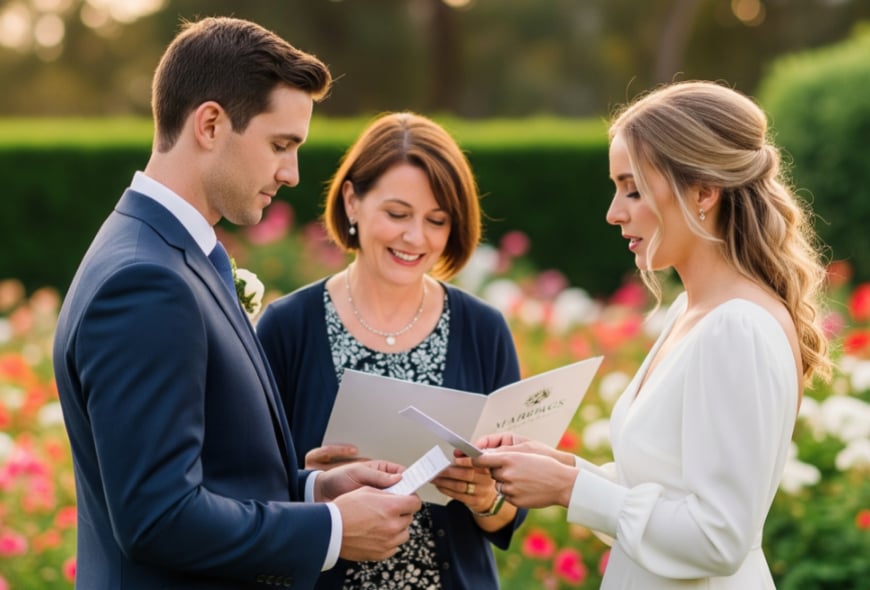
Modern ceremonies are evolving beyond traditional formats to embrace the rich tapestry of backgrounds, beliefs, and identities that make up today’s families and communities. A skilled celebrant serves as your guide in crafting a ceremony that not only reflects your personal story but ensures every guest feels valued and included. From incorporating multicultural elements to using accessible language, your celebrant can help you navigate the delicate balance of honouring tradition whilst creating space for everyone present.
Understanding Inclusivity in Ceremonies
Inclusivity in ceremonies extends far beyond simply inviting diverse guests. It encompasses the deliberate choices made in language, traditions, accessibility, and representation throughout your special day. An inclusive ceremony acknowledges the various cultural backgrounds, physical abilities, family structures, and personal beliefs of those gathered to celebrate with you.
Your celebrant plays a pivotal role in identifying potential barriers to inclusion and suggesting meaningful alternatives. They bring experience from countless ceremonies and understand how small adjustments can make enormous differences in ensuring everyone feels welcome and represented.
Language That Welcomes All
The words spoken during your ceremony carry tremendous weight, and your celebrant can help craft language that embraces rather than excludes. This might involve using gender-neutral terms when addressing the gathering, avoiding assumptions about family structures, or incorporating multiple languages to honour diverse heritage.
Rather than defaulting to traditional phrases that might not resonate with modern families, your celebrant can work with you to develop personalised wording that reflects your values whilst remaining respectful of all present. They can also suggest ways to explain unfamiliar traditions or customs, helping guests from different backgrounds understand and appreciate the significance of various elements.
Incorporating Diverse Traditions
Many couples today come from different cultural, religious, or ethnic backgrounds, and your celebrant can help weave these diverse threads into a cohesive celebration. This might involve incorporating rituals from multiple traditions, explaining the significance of various customs, or finding creative ways to honour deceased relatives from different cultures.
Your celebrant’s expertise becomes invaluable when navigating potentially conflicting traditions or when family members have strong opinions about which elements should be included. They can suggest compromises and alternatives that respect everyone’s wishes whilst maintaining the integrity of your ceremony.
Physical Accessibility Considerations
An inclusive ceremony must be physically accessible to all guests, and your celebrant can help identify and address potential barriers. This includes considering the needs of elderly relatives, guests using mobility aids, or those with sensory impairments.
Your celebrant might suggest ceremony positioning that ensures all guests have clear sightlines, recommend amplification for better hearing, or advise on timing considerations for guests who may need frequent breaks. They can also help you think through logistics like accessible parking, pathway lighting, and seating arrangements that accommodate various physical needs.
Creating Safe Spaces for All Identities
Modern ceremonies often include guests from the LGBTQ+ community, and your celebrant can help ensure your ceremony feels welcoming and affirming for all sexual orientations and gender identities. This might involve using inclusive language, avoiding assumptions about relationships, or incorporating symbols and elements that demonstrate acceptance and celebration of diversity.
Your celebrant can also help you navigate sensitive family dynamics where acceptance levels may vary, finding ways to honour your values whilst maintaining family harmony during this important celebration.
Religious and Spiritual Sensitivity
In our increasingly diverse society, your ceremony guests may hold various religious beliefs or identify as non-religious. Your celebrant can help you craft a ceremony that respects this diversity whilst staying true to your own spiritual journey.
This might involve offering moments of silent reflection rather than specific prayers, using inclusive spiritual language, or finding universal themes that resonate across different belief systems. Your celebrant can suggest ways to honour various faith traditions without requiring participation from those who don’t share those beliefs.
Age-Inclusive Elements
Creating an inclusive ceremony means considering guests of all ages, from young children to elderly relatives. Your celebrant can suggest ways to engage different age groups, whether through interactive elements, age-appropriate explanations, or considerations for attention spans and comfort needs.
They might recommend including children in meaningful ways, providing quiet activities for restless little ones, or ensuring elderly guests have comfortable seating and clear hearing throughout the proceedings.
Financial Inclusivity in Ceremony Planning
Your celebrant can also help address the often-overlooked aspect of financial inclusivity, ensuring that your ceremony doesn’t inadvertently exclude guests due to economic constraints. This might involve choosing accessible venues, considering the financial impact of destination ceremonies, or finding ways to include guests who cannot afford traditional wedding gifts or attire.
Working Collaboratively with Your Celebrant
The key to creating an inclusive ceremony lies in open communication with your celebrant about your values, your families' needs, and your vision for the day. Share information about your guests' backgrounds, any potential sensitivities, and your hopes for creating a welcoming atmosphere.
Your celebrant should be asking thoughtful questions about inclusivity and offering suggestions based on their experience. They should demonstrate cultural competency and show genuine interest in learning about traditions or customs they may not be familiar with.
The Lasting Impact of Inclusive Ceremonies
When ceremonies are thoughtfully inclusive, they create ripple effects that extend far beyond the day itself. Guests feel valued and respected, family relationships are strengthened, and the celebration becomes a model for how communities can come together across differences.
Your celebrant’s role in facilitating this inclusivity cannot be overstated. Their expertise, sensitivity, and commitment to creating welcoming spaces help transform ordinary ceremonies into extraordinary celebrations of love, acceptance, and community.
By working closely with your celebrant to prioritise inclusivity, you're not just planning a ceremony – you're creating a foundation for relationships and memories that will last a lifetime. The investment in thoughtful, inclusive planning pays dividends in the joy, comfort, and connection felt by all who share in your special day.
Find the right Celebrant for you right HERE💍


